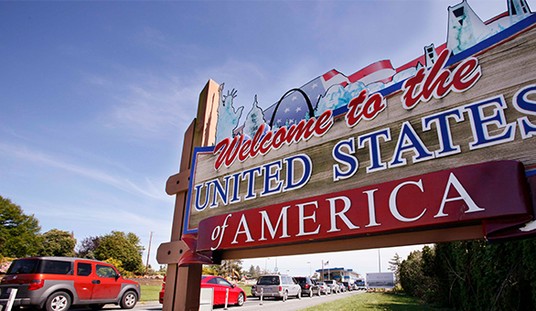20Committee’s John R. Schindler compares old Yugoslavia to the United States today, and the parallels are ominous:
Some of the parallels are eerie and troubling. The differences must be explained up-front. Yugoslavia at its collapse had less than one-tenth of America’s population now, and its system of government was a socialist dictatorship, albeit one of a relatively enlightened kind. Notwithstanding a very nasty secret police force, Yugoslavia as nurtured under the charismatic Tito was a good deal more pleasant place to live than anywhere in the Soviet Bloc. Yugoslavs were free to travel abroad and, after the early 1950s, the repressive state apparatus didn’t have to throw many dissidents in prison, as public shaming, including threats of unemployment and loss of housing, cowed most would-be complainers into towing the party line, at least in public.
The root of Yugoslavia’s collapse was economic, particularly its parlous state finances. During the Cold War, Tito, who broke with Stalin in 1948 and thereby shattered Communist unity in Eastern Europe, was able to get big Western loans, since NATO viewed Yugoslavia as a necessary anti-Soviet bulwark in Europe, and with these billions of dollars, at low interest rates, the country developed a wide array of industries under its unique market socialist model.
Unfortunately, the oil shocks of 1973 ultimately undid this Balkan ponzi scheme, and as the cost of borrowing foreign money became prohibitive, Yugoslavia’s economy began to creak. At root, the country’s current operations, including funding the bloated state sector, depended on borrowed foreign money that Yugoslavia could no longer afford.
Let’s try and look at this rationally.
With health insurance, education, retirement, and welfare more or less nationalized, it’s difficult to argue the US isn’t a social state, if not nearly a socialist dictatorship. (Although the trend in that direction is unsettling.) The next line really intrigues me, where the authors say, “the repressive state apparatus didn’t have to throw many dissidents in prison, as public shaming, including threats of unemployment and loss of housing, cowed most would-be complainers into towing the party line.” Again, the current trend line is not exactly comforting, as we saw the FBI crack down on a peaceful political group in Texas in reports yesterday.
If Schindler has it right, (and it jibes with my dim memories) what undid Yugoslavia was the oil shock of the early ’70s, and Belgrade’s sudden inability to keep the gravy train running. We’re in luck, as the US is now the number one or two producer of crude oil, a huge producer of natural gas, and despite the Administration’s best efforts we’re still a huge producer of coal.
Energy shocks seem unlikely to derail our gravy train.
Could anything derail it? Yes, absolutely — the sheer size of the train. Our funded welfare state liabilities for the next half century or so have been given estimates of anywhere between $50,000,000,000,000 and $150,000,000,000,000. That’s on top of our funded liabilities, which are already massive. There’s simply no way to squeeze that much more money out of our economy, even if growth rates and labor participation rates didn’t suck so badly. Worse, the worker-to-recipient ratio will go from “I got this, gramps!” to “Where did all the workers go?” in fairly short order.
We don’t need an oil shock to send of over the edge — the entitlement mentality in Congress and in ourselves sealed that deal long ago.
The Great Unanswerable is whether we can summon the political will to rein in those unfunded liabilities before they crush us, or whether we go the way of Japan — or the way of Yugoslavia.
Eleven years ago when George W Bush ran for reelection partly on a promise to partially privatize Social Security, I had some hope. Nowadays? Less.










Join the conversation as a VIP Member